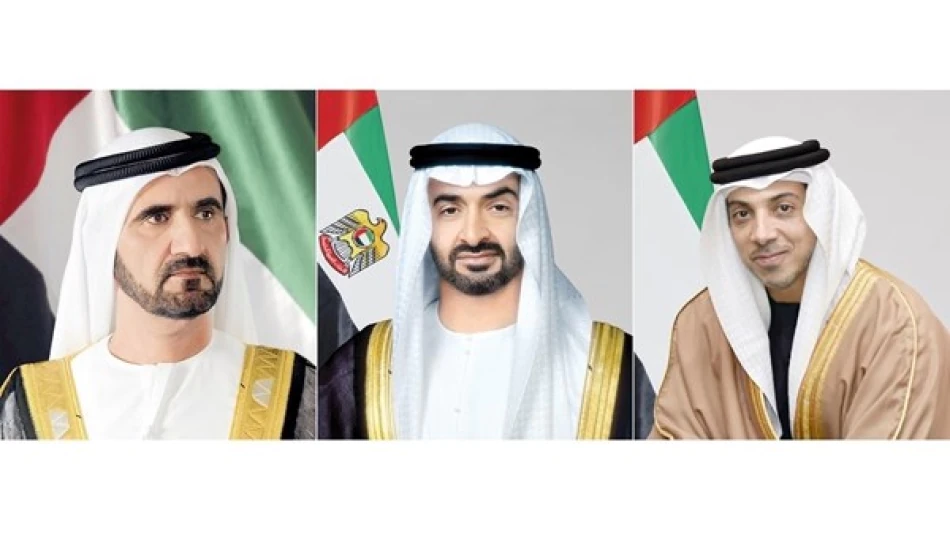
UAE Leaders Congratulate Gabonese President on Independence Anniversary
UAE Leadership Extends Diplomatic Congratulations to Gabon on Independence Day
The United Arab Emirates' top leadership has sent congratulatory messages to Gabonese President Brice Clotaire Oligui Nguema on the occasion of Gabon's independence anniversary, signaling continued diplomatic engagement between the Gulf nation and the Central African republic amid broader efforts to strengthen UAE-Africa relations.
High-Level Diplomatic Outreach
UAE President Sheikh Mohammed bin Zayed Al Nahyan dispatched a congratulatory telegram to President Oligui Nguema, marking Gabon's independence celebration. The gesture was echoed by other senior UAE officials, including Vice President and Prime Minister Sheikh Mohammed bin Rashid Al Maktoum, who also serves as Dubai's ruler, and Deputy Prime Minister Sheikh Mansour bin Zayed Al Nahyan.
The coordinated diplomatic messaging from the UAE's highest offices underscores the importance the Emirates places on its relationships across the African continent, particularly with resource-rich nations like Gabon.
Strategic Context Behind the Diplomacy
UAE's Africa Strategy
This diplomatic outreach reflects the UAE's broader strategic pivot toward Africa over the past decade. The Emirates has positioned itself as a key gateway between Africa and global markets, leveraging Dubai's status as a major trading hub and the UAE's growing investment appetite for African opportunities.
The timing is particularly significant given Gabon's recent political transition. President Oligui Nguema came to power following a military coup in August 2023, ending the Bongo family's 56-year rule. The UAE's continued diplomatic engagement suggests a pragmatic approach to working with Gabon's new leadership.
Economic Implications
Gabon represents an attractive partner for UAE investors, particularly given its oil reserves and mineral wealth, including manganese deposits that are crucial for steel production. The country's relatively small population of 2.3 million combined with significant natural resources creates opportunities for UAE companies seeking to expand their African footprint.
For international investors, the UAE's diplomatic engagement with post-transition Gabon could signal growing confidence in the Central African nation's stability under its new leadership, potentially opening doors for increased trade and investment flows.
Regional Diplomatic Patterns
The UAE's approach mirrors similar strategies employed by other Gulf states, particularly Saudi Arabia and Qatar, in building stronger ties with African nations. However, the Emirates has distinguished itself through its focus on practical economic partnerships rather than purely political alliances.
This diplomatic gesture also comes as African nations increasingly diversify their international partnerships beyond traditional European allies, seeking new sources of investment and trade. The UAE's consistent engagement with countries undergoing political transitions positions it favorably in this evolving landscape.
The congratulatory messages represent more than ceremonial diplomacy—they signal the UAE's commitment to maintaining stable relationships with African partners regardless of political changes, a strategy that could yield significant economic dividends as both regions seek to expand their global influence.
Most Viewed News

 Layla Al Mansoori
Layla Al Mansoori






